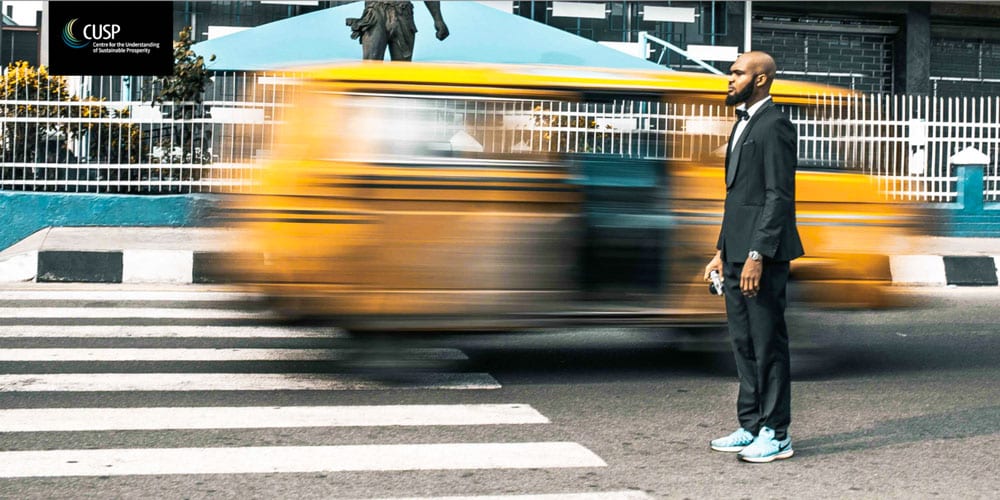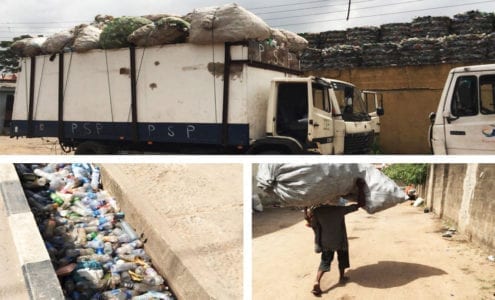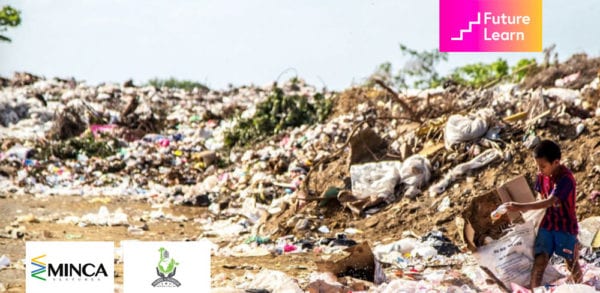Acknowledging new realities for Nigerian social entrepreneurs | Workshop reflections
With the long-term impact of the current crisis on global economies yet to be understood, a vast number of social enterprises are likely to suffer after the lockdown due to severe constraints to their operations. What will this mean for alternative business in Nigeria and how can one prepare their organisation for this new reality? A recent CUSP workshop engaged with social entrepreneurs, reflecting on their strategies. Here, Adeyemi and colleagues are summarising the learnings.

The current global pandemic brings about unprecedented societal, economic, and commercial disruptions. As entire countries fall under varying quarantine and lock-down orders, most businesses and entrepreneurs have had to seek innovative and adaptive ways to remain resilient in the face of COVID-19. Social enterprises are particularly faced with addressing immediate needs in their communities to navigate the current crises, while adjusting to impending commercial uncertainties, rising social needs and worsening environmental pollution. How are they responding and how can they reposition their organizations for new realities?
This question was central to discussions in a two-day virtual workshop organised for social enterprises and entrepreneurs in Nigeria (July 16 & 17, 2020). The event was a collaborative effort between a number of London-based CUSP members and the American Corner at CoCreation Hub Lagos. The invitation for participants was well received, with 94 entrepreneurs pre-registering for attendance indicating a high level of interest for such a discussion. As the workshop was held virtually, it also meant that participants from outside Lagos were able to participate.
Insights leading to the workshop
The pandemic has severely disrupted almost everything we used to know and ushered in new norms that we all had to adjust to in one way or another. Even in pre-corona times, the socially entrepreneurial vanguard mounted against endemic social problems globally was beset with huge difficulties. COVID-19 has only further exacerbated those difficulties. Both small and large organisations have had to make significant changes in the way they relate with either their staff, customers, suppliers or beneficiaries. For social enterprises—understood as having primary social and/or environmental missions while operating in commercial markets—the pandemic has brought an immediate mix of opportunities to do more and challenges on how to respond. While most forms of trading were brought to a halt due to severe lockdowns, social needs to help those vulnerable and affected by it has skyrocketed.
This virtual gathering was an extension of a Lagos-ran workshop held in 2019 calling for social entrepreneurs to assess the risks brought about by current events, the opportunities in re-thinking strategies and evaluation of their organisations’ potential impacts. The need for this was apparent in the call for registration where participants were given the option to indicate, in advance, specific areas they would like the workshop to address. The majority of the issues raised were about how they can respond to, raise funds during, and—not least—survive the pandemic . To accommodate the complexity and urgency, we ran the workshop over two days this time, to thoroughly discuss strategy and impact measurement issues, with the latter particularly aimed at guiding the participants to capture the impact they make for funding application purposes.
The attendees came with a wide portfolio of social and environmental concerns that drives their enterprises in Nigeria—from youth education, social inequality, to waste management, slum dwelling, and basic hunger, precariousness, unemployment and health-related issues. The participating organisations were small sized with over half of them having a staff strength of between two and five. (Two thirds were males again. While the reason for this cannot be ascertained at this point, there have been reports on women-led enterprises being disproportionately under-supported in Africa, mirrored also in the limited numbers in our workshop, with calls for the implementation of gender-lens policies and solutions to address such gaps.)
Day 1: Rethinking strategies
Following last year’s suggestion to include more practitioners in the workshop concept, for this edition we were supported by guest speakers with a wealth of experience of the social enterprise sector locally and internationally. Mrs Alero Ayida-Otobo is a well-respected, serial social entrepreneur in Nigeria with an international influence. With strong traction in the audience, she opened the first day, setting out concrete steps to enable the entrepreneurs to tackle the current challenges head-on. “The Unconventional, the Uncommon and the Unusual – are those who thrive in 2020 and have the ability to drive change” was the challenge left by Mrs. Alero for the participants.
The following strategy workshop session aimed to put into practice this longer time horizon thinking, with a particular view on the COVID-19 crisis and longterm implications. Ambrose Massaqoui and Adeyemi Adelekan ran participants through the scenario planning tool—indispensable for setting out flexible long-term plans in times of huge insecurities. Participants were guided to plan for the next 18-24months, using six uncertainties likely to persist into the near future, thereby having significant implications for their organisations. They were made to develop quadrants of scenarios with the uncertainties and to prepare strategic responses should they occur. This laid the groundwork for day 2 discussions on how to measure the impact of such strategic responses.
Day 2: Assessing impact
Day two was opened by Deputy Director of CUSP Professor Fergus Lyon, who gave a keynote on how to demonstrate impact and learn what works in the process, followed by the wonderful Mrs Josephine Nzerem, an experienced and erudite social entrepreneur and the current director of venture and talent at Ashoka Africa. She spoke on the changing landscape for social entrepreneurs and what they can do to prepare and survive. This was followed by an interactive impact metrics workshop led by CUSP researcher Joanna Kitchen. The set activity was to encourage participants to think about how to operationalise their strategies through impact measurement. Participants were called to assess and evaluate their respective organisations’ social and environmental impacts, while introducing tools for measuring and reporting those.
The group discussions on both days were guided by this blog’s authors, each facilitating smaller groups prior to the whole group’s debriefing session.
The Learning Exchange and Future Directions
The feedback from the event was encouraging with all participants expressing interests in attending similar workshops in the future. Also, the debrief with facilitators and collaborators highlighted future directions for the workshop such as the blended approach option, in order to take advantage of the virtual and physical meeting opportunities to make the workshop experience more inclusive. In addition, the workshop format promoted cross-fertilisation, fruitful discussions and networking opportunities for social entrepreneurs eager to contribute to a better world. In retrospect, the two days demonstrated society’s innovativeness and resilience amidst the pandemic, as social entrepreneurs tirelessly seek solutions, alongside accelerators, government and support organisations, to make the world a better place. With the tools and concepts provided in the workshop, our hope is that they now are even better equipped to demonstrate that potential and put it into practice in order to contribute in building Nigeria back better.



